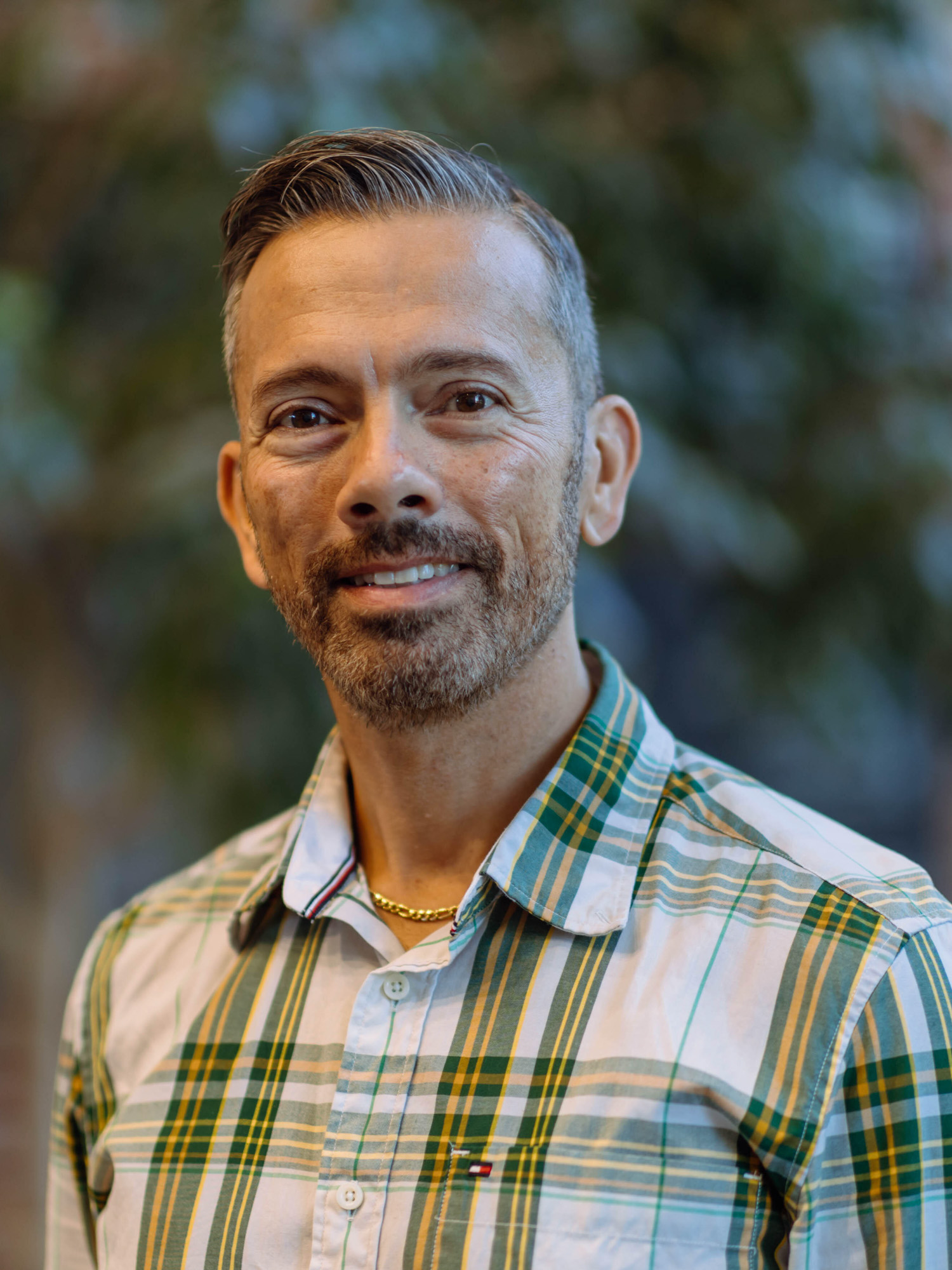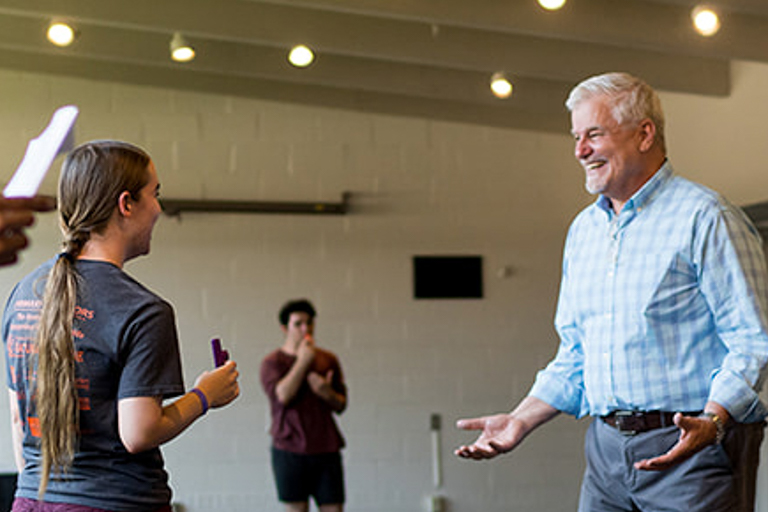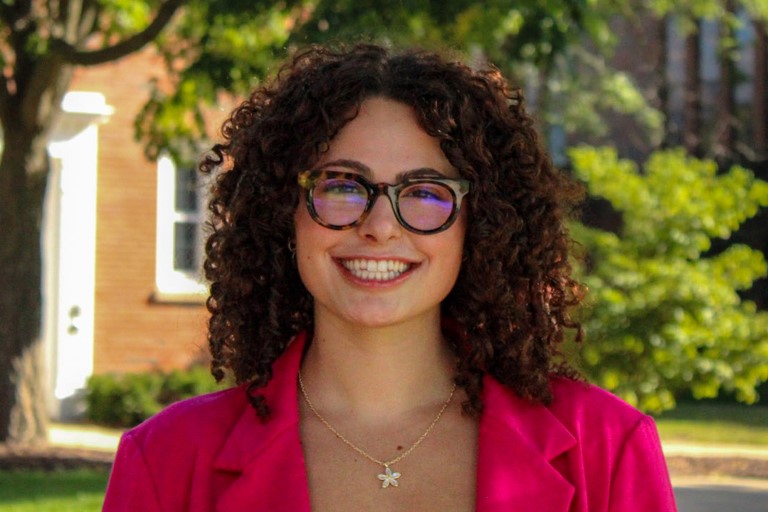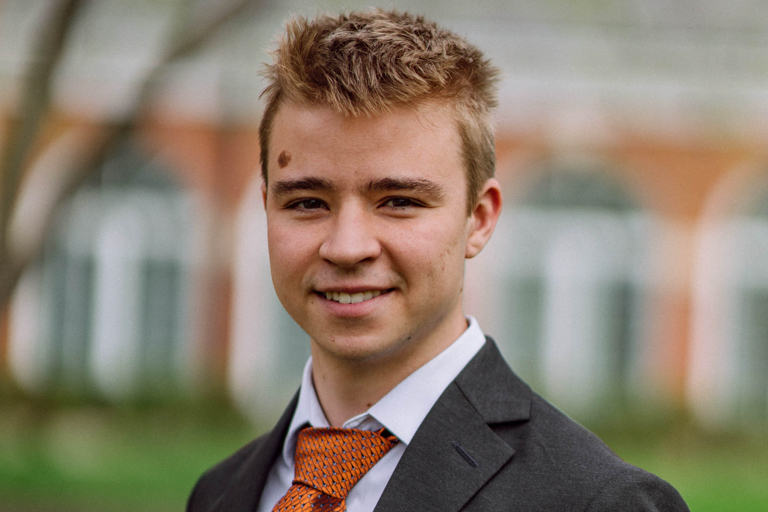Perceiving God’s Nature in Mathematics: Dr. Danilo Diedrichs
Professor of Mathematics, Department Chair
Words: Juliana Bacote

Dr. Danilo Diedrichs
Some professors write in their free time. Others garden or run a farm. Still others play tennis. Dr. Danilo Diedrichs figure skates. Twice a week, he heads to a local ice rink at six in the morning before coming to campus. While this schedule could overwhelm many, his disciplined routine enables him to prioritize the non-negotiable parts of his life. “If you miss a week or two, you really feel it and start regressing,” Diedrichs said. “That keeps me extremely motivated to not miss a single session.”
Diedrichs recognizes that two of his favorite aspects of skating—mastering skills and self-discipline—are also present in another key area of his life: mathematics.
Diedrichs’ love for mathematics was born when he was in first grade in Switzerland, and has stayed with him throughout his life. Years later, Diedrichs found language to describe why he was so drawn to the topic. “Observing something that evolves in space and time through a mathematical lens (a mathematical field called ‘dynamical systems’) sometimes reveals incredibly beautiful patterns,” he said. “Patterns of order, patterns of thought, and patterns of shape—all of which I find incredibly satisfying. That’s what drew me and continually draws me to mathematics.”
In 1998, Diedrichs moved to the U.S. with his engineering degree in one hand and a myriad of interests in the other. “I didn’t know exactly what I wanted to do,” he said. “It’s a lot easier to explore different careers in the United States than in Europe. It was never supposed to be long-term, but one thing led to another, and here I am 27 years later.”
Diedrichs was fascinated by fields that used mathematics to describe what people observe in the natural world. This fascination led him to pursue careers in engineering (for about one year) and intermodal international supply chain logistics (for about nine years). During that decade, dissatisfaction crept in. “When you study math or engineering for the purpose of going into the industry, you study a lot of very fascinating advanced math,” Diedrichs said. “But once I started working in the industry, I became a bit disillusioned, as my work consisted more of writing emails, talking on the phone, and sitting in meetings than doing math at the level of intensity and depth that really satisfies me.”
Despite this more frustrating season, he leaned into opportunities to train and mentor new hires, through which he discovered his love for teaching. Pursuing a professorship was perfect for someone who wanted to dive into cutting-edge scientific and mathematical research while teaching. “Returning to academia was like a breath of fresh air,” Diedrichs said. “I entered a thriving environment where I could do intense math and be in contact with other people who were interested in intellectual pursuits at a very deep level.”
Since he began teaching at Wheaton, one question has served as the foundation of Diedrichs’ work: How can mathematics be used to practically change the world for the better?
For Diedrichs, the first step is to recognize the presence of math in different parts of life. “Math has all these very natural relationships with the humanities, arts, and sciences,” Diedrichs said. “I think the most effective way to appreciate math is by collaborating with those other fields.”
The second step? View math like a language. Diedrichs specifically uses differential equations—equations that describe change—in this way. “I tell my students that these equations are a language you can use to describe evolving patterns in the world, similar to a language that God himself would have used to describe the laws that govern the world around us,” said Diedrichs.
In his classes, Diedrichs stresses the importance of recognizing how math reflects the Creator. “God imbued his creation with his character of law and order to the point where we as his creation are able to apprehend that aspect of his character by observing his creation,” he said.
This leads to step three: Interact with God’s creation in a way that helps people study and understand it better. Diedrichs believes living out this responsibility is a privilege.
It is also a privilege for him to watch his students grow. “I really enjoy observing how students progress over four years,” Diedrichs said. “I’m able to watch math majors from their very first semester until their final one and see their development in maturity, reasoning ability, and problem-solving ability.”
His relationships with students even extend beyond graduation. “Several years after they graduate, some students come see me and say, ‘You changed my life,’” said Diedrichs. “And I tell them that they changed my life, too. I distinctly remember where they started and where they ended. Their growth is something I was a part of, and for that, I’m grateful.”
Learn more at wheaton.edu/mathematics.




